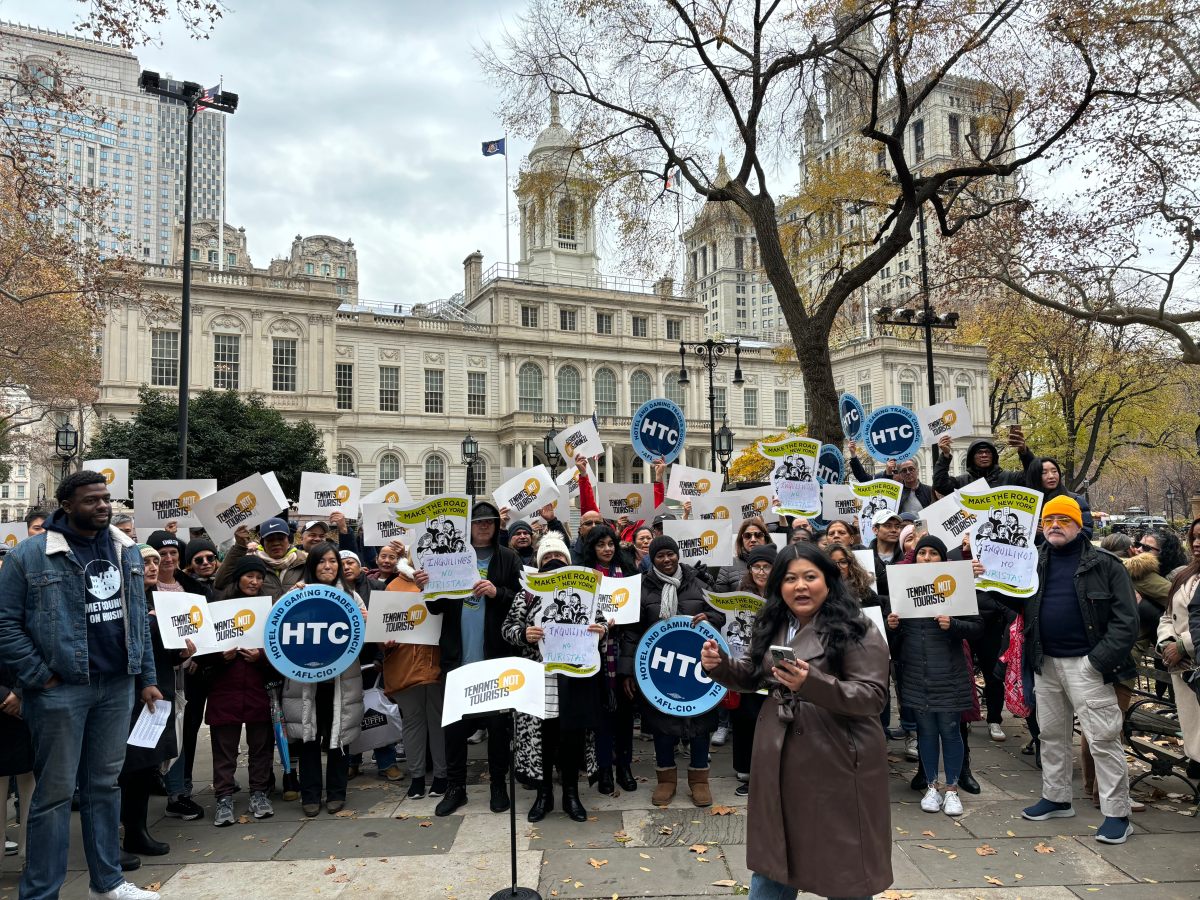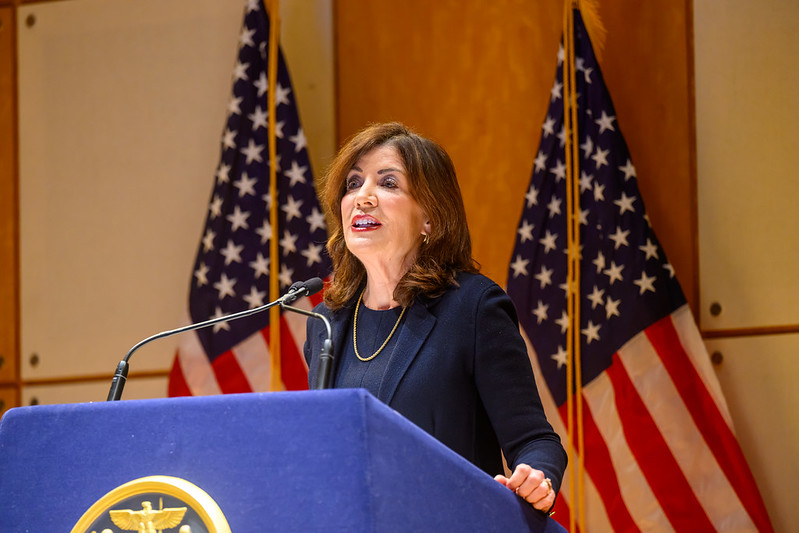By Alex Robinson
Private institutions have started to take a vital role in the fight against human trafficking, Manhattan’s top prosecutor said at a panel discussion Monday.
“Corporate America is getting it and our representatives are getting it,” Cyrus Vance told a packed ballroom at the Grand Hyatt Hotel as part of the 2014 Concordia Summit.
Vance participated in a panel with a number of lawmakers, and representatives from nonprofits and corporations to stress the importance of public-private partnerships in the battle against human trafficking.
Roosevelt Avenue in Queens has been a center of sex trafficking over the years, as many young, foreign-born women migrating to the borough have fallen prey to traffickers, advocates said.
Since 2004, there have been more than 1,000 sex trafficking victims in the borough, some of whom have been as young as 13, according to the Queens district attorney’s office.
More than 55 percent of the 120 sex trafficking victims who have sought services at the city’s family justice centers since they opened in 2005 have been from Queens.
The Manhattan district attorney said there are a number of ways private institutions are helping to build cases against human traffickers. Hotels, banks and airlines have started working with prosecutors by looking out for certain patterns which coincide the crime.
“We are just one small part of this issue, but I believe we are at the forefront of this issue,” said Letty Ashworth, the director of global diversity at Delta Airlines. “We’ve very much been engaged in this effort with our own employees first, but we’ve also been reaching out to our consumers.”
Delta has trained more than 70,000 of its 80,000 employees to be on the look out for signs of human trafficking.
One of the largest obstacles in tackling human trafficking is that many victims refuse to come out of the shadows as they feel trapped in their circumstances, too scared to go to the police for fear of being arrested or deported, Vance said.
“There are victims who are so desperately twisted that they actually perceive hate, abuse and violence as something they prefer to being left alone,” Vance said.
New laws which provide legal protections for trafficking victims and bolster penalties for traffickers have been passed in only 39 states.
New York’s state Legislature did not pass a bill against human trafficking until 2007.
Vance said New York’s laws are adequate to take on the problem, but that more could be done in other parts of the country to raise awareness and help build stronger cases against perpetrators.
“I think there needs to be more pressure brought by state Legislators on this issue, but times are changing,” he said.
State Sen. Jose Peralta (D-East Elmhurst) has introduced a bill in the state Legislature as part of the Women’s Equality Act, which would increase minimum sentences for those found guilty of human trafficking. It would increase minimum sentences for first-time offenders and require life in prison for repeat offenders.
Reach reporter Alex Robinson by e-mail at arobinson@cnglocal.com or by phone at 718-260-4566.




































